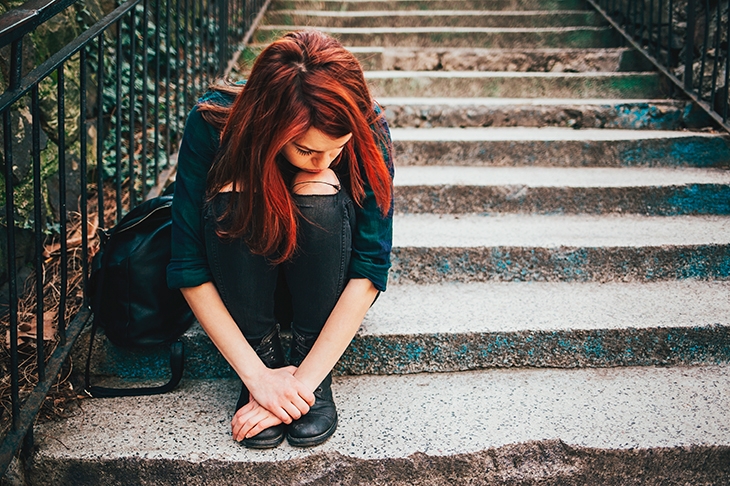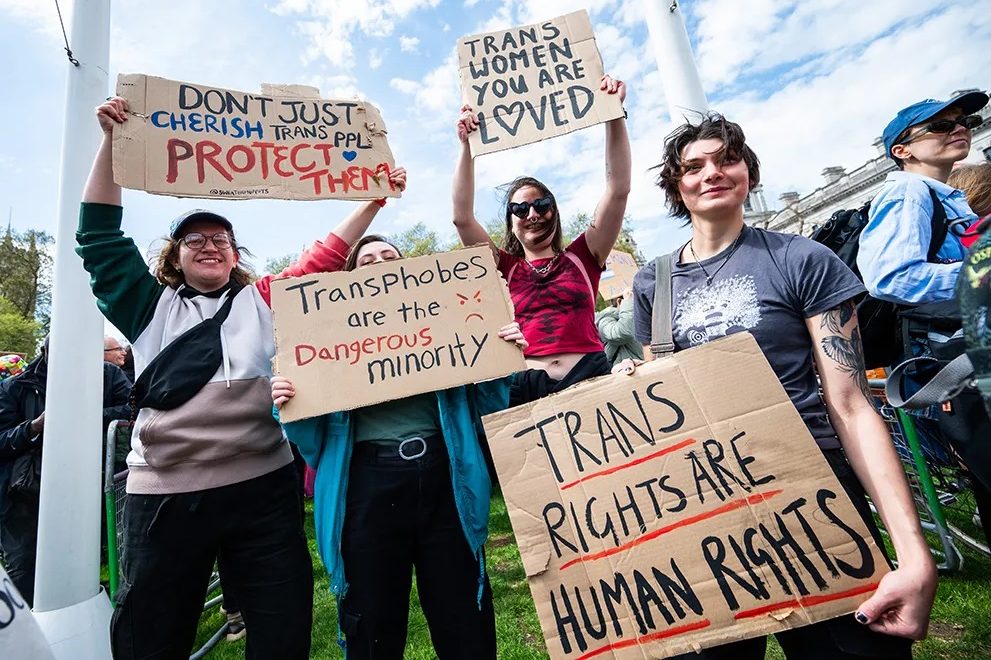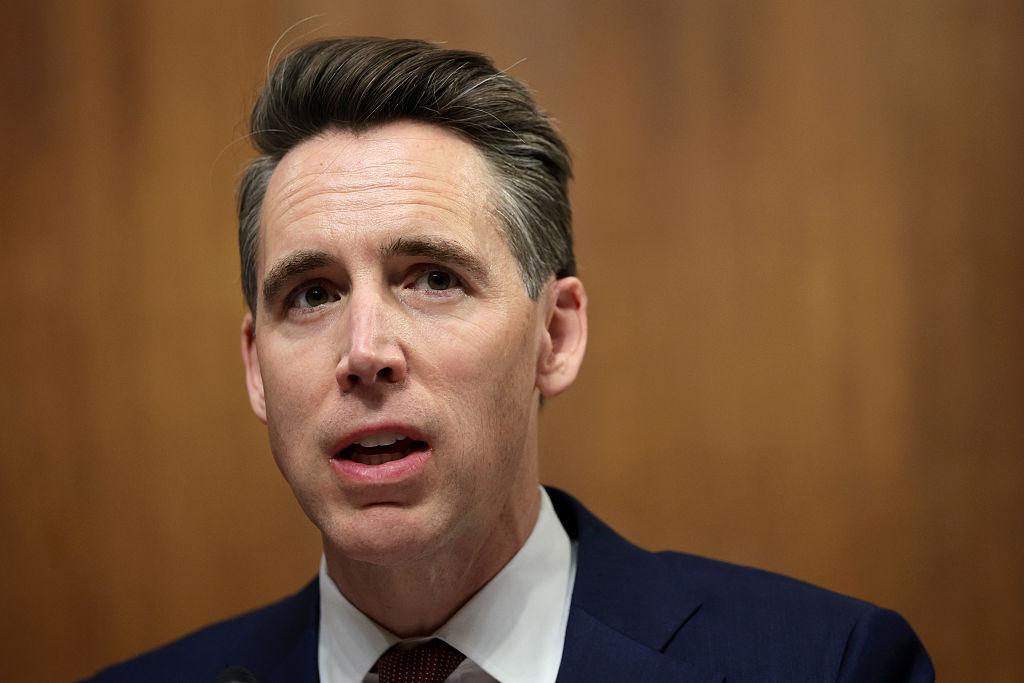You can 3D-print your own suicide pod now. No doctor’s note required. And it’s legal in Switzerland. One woman featured in the official announcement video called the pod “utopian.”
According to one of the numerous news pieces covering Sarco (as the device is known), those who die by this and similar means are “cared for,” not “killed.” And yet that same article included the phone number of a suicide hotline along with a disclaimer: “If you or someone you know is struggling with depression or has had thoughts of harming themselves or taking their own life, get help.”
But why? Is suicide bad or isn’t it? And if it isn’t, why are you telling suicidal people to get help?
These questions conjure up a vision of a horrific future, a future in which a father who pleads with his depressed 11-year-old daughter not to kill herself is considered just as much of a monster as a father who urges his gender-dysphoric little girl to hold off on starting puberty blockers. “Her suffering is real!” the social justice warriors will scream. Or maybe they’ll borrow from NARAL’s playbook: “If the doctors won’t help her, she’ll just do it herself under unsafe conditions!”
We’ll hear about how horribly unjust it is that the wealthy can take “suicide tourism” trips to countries where it’s legal while the working poor have to make do with ropes, guns, and razors. (Actually, we’re already hearing about it). Any therapist who refuses to entertain suicide as a valid option for his patients will be in danger of losing his license.
Dr. Philip Nitschke, the infernal machine’s diabolical inventor, says he wants to “de-medicalize the dying process.” For Nitschke, to be provided on demand with the means of killing oneself painlessly is an unquestionable human right.
Assisted suicide was initially legalized, in Switzerland and elsewhere, with the understanding that it would be used to put a humane end the suffering of the terminally ill. Unfortunately, the slippery slope isn’t always a fallacy.
In 2006, the Swiss Federal Supreme Court ruled on a case in which a 53-year-old bipolar man sought a prescription for a lethal dose of phenobarbital in order to end his life. Aside from the mental illness, he was perfectly healthy. The court ruled that the medical system was under no obligation to provide him with the drugs but that people with “incurable, permanent, severe psychological disorders” had the right to end their lives provided their decisions are “rational” and “well-considered” and not the result of a temporary “expression of treatable psychological disturbance.” The ruling also specified that the man would have to obtain a psychiatric evaluation before seeking assistance in ending his life.
The decision is well hedged with qualifications, but the long-term consequences to which its central claim will lead are obvious. One by one, concerns about soundness of mind, competence to make the decision, and even medical approval will fall away.
It’ll be the same bait-and-switch act we’ve seen with abortion and transgenderism.
Earlier generations of abortion rights advocates conjured images of women abused, impoverished, abandoned, or facing life-threatening complications. It was a smokescreen, of course. The overwhelming majority of abortions are and always have been purely elective. But those early abortion activists at least maintained a veneer of empathy, and their reasoning was compatible with waiting periods, restrictions after viability, and bans on sex- or race-selective abortions.
Their successors make no such pretense. Their favored argument is bodily autonomy, and it is absolute. If a woman decides to abort a healthy baby in the third trimester because she doesn’t want to miss the girls’ trip to Cabo that her gal pals planned for the week after her due date, that’s perfectly valid. She owes an explanation to no one.
Trans acceptance was also initially framed as necessary for the relief of suffering that was intense and objectively verifiable. There exists and has always existed, we were told, a mental disorder called gender dysphoria that is characterized by agonizing discomfort in one’s own body and often leads to suicide. The best treatment for this disorder, the argument went, is medical transition and the social acceptance of that transition.
Fair enough. But this formulation, once on the cutting edge of compassion, is now considered hopelessly bigoted. Those who insist that a diagnosis of gender dysphoria should be required as a precondition for identifying as transgender or obtaining any hormone treatments or sex-change surgeries are smeared as “truscum” and accused of gakekeeping and medicalizing queerness. Anyone who wishes to live as the opposite gender, or even as some new gender known only to him or her or xem or zir, must not be questioned or inhibited in any way, not even by the medical establishment. To suggest that we might want to pump the brakes in cases involving children or the mentally unstable is to out oneself as a transphobe.
In both cases, we saw a shift from “Look how compelling their reasons are” to “they don’t need a reason, you bigot!” Compassion stuck its foot in the door so that pure Nietzschean will-worship could barge into your living room and piss on your carpet.
The author of a scholarly article on the 2006 Swiss court case states that the “twin goals” of assisted suicide are “maximizing individual autonomy and minimizing human suffering.” His claim is too modest. In fact, these are the twin goals of our entire society. It recognizes no higher end, not even the preservation of human life. The coming regime of assisted suicide on demand and without obstacle is the ultimate expression of those goals. The trans and abortion issues were dry runs by comparison.
Of such a society, Michel Houellebecq wrote that “it loses in my eyes all right to respect. It becomes henceforth not only legitimate, but desirable, to destroy it; so that something else…might have a chance to arise.”

























